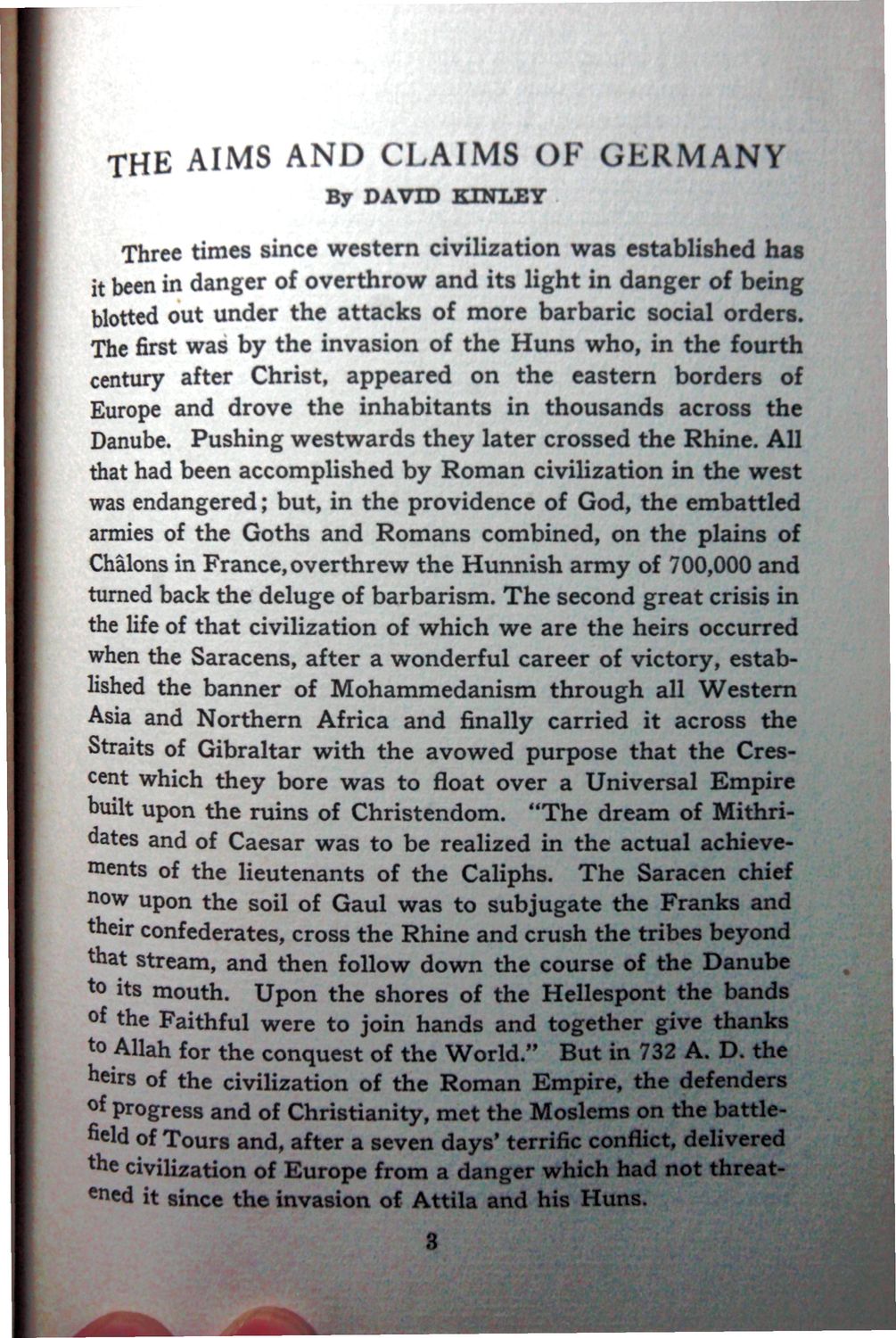| |
| |
Caption: War Publications - WWI Compilation 1923 - Article 25
This is a reduced-resolution page image for fast online browsing.

EXTRACTED TEXT FROM PAGE:
THE AIMS AND CLAIMS OF GERMANY By DAVID KINLEY Three times since western civilization was established has it been in danger of overthrow and its light in danger of being blotted out under the attacks of more barbaric social orders. The first was by the invasion of the Huns who, in the fourth century after Christ, appeared on the eastern borders of Europe and drove the inhabitants in thousands across the Danube. Pushing westwards they later crossed the Rhine. All that had been accomplished by Roman civilization in the west was endangered; but, in the providence of God, the embattled armies of the Goths and Romans combined, on the plains of Chalons in France, overthrew the Hunnish army of 700,000 and turned back the deluge of barbarism. The second great crisis in the life of that civilization of which we are the heirs occurred when the Saracens, after a wonderful career of victory, established the banner of Mohammedanism through all Western Asia and Northern Africa and finally carried it across the Straits of Gibraltar with the avowed purpose that the Crescent which they bore was to float over a Universal Empire built upon the ruins of Christendom. "The dream of Mithridates and of Caesar was to be realized in the actual achievements of the lieutenants of the Caliphs. The Saracen chief now upon the soil of Gaul was to subjugate the Franks and their confederates, cross the Rhine and crush the tribes beyond that stream, and then follow down the course of the Danube to its mouth. Upon the shores of the Hellespont the bands °f the Faithful were to join hands and together give thanks to Allah for the conquest of the World." But in 732 A. D. the h eirs of the civilization of the Roman Empire, the defenders of progress and of Christianity, met the Moslems on the battlefield of Tours and, after a seven days' terrific conflict, delivered the civilization of Europe from a danger which had not threat^ e d it since the invasion of Attila and his Huns. 3
| |